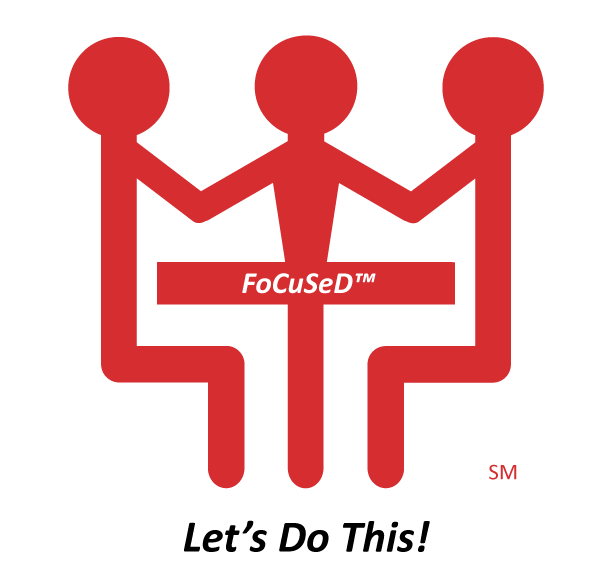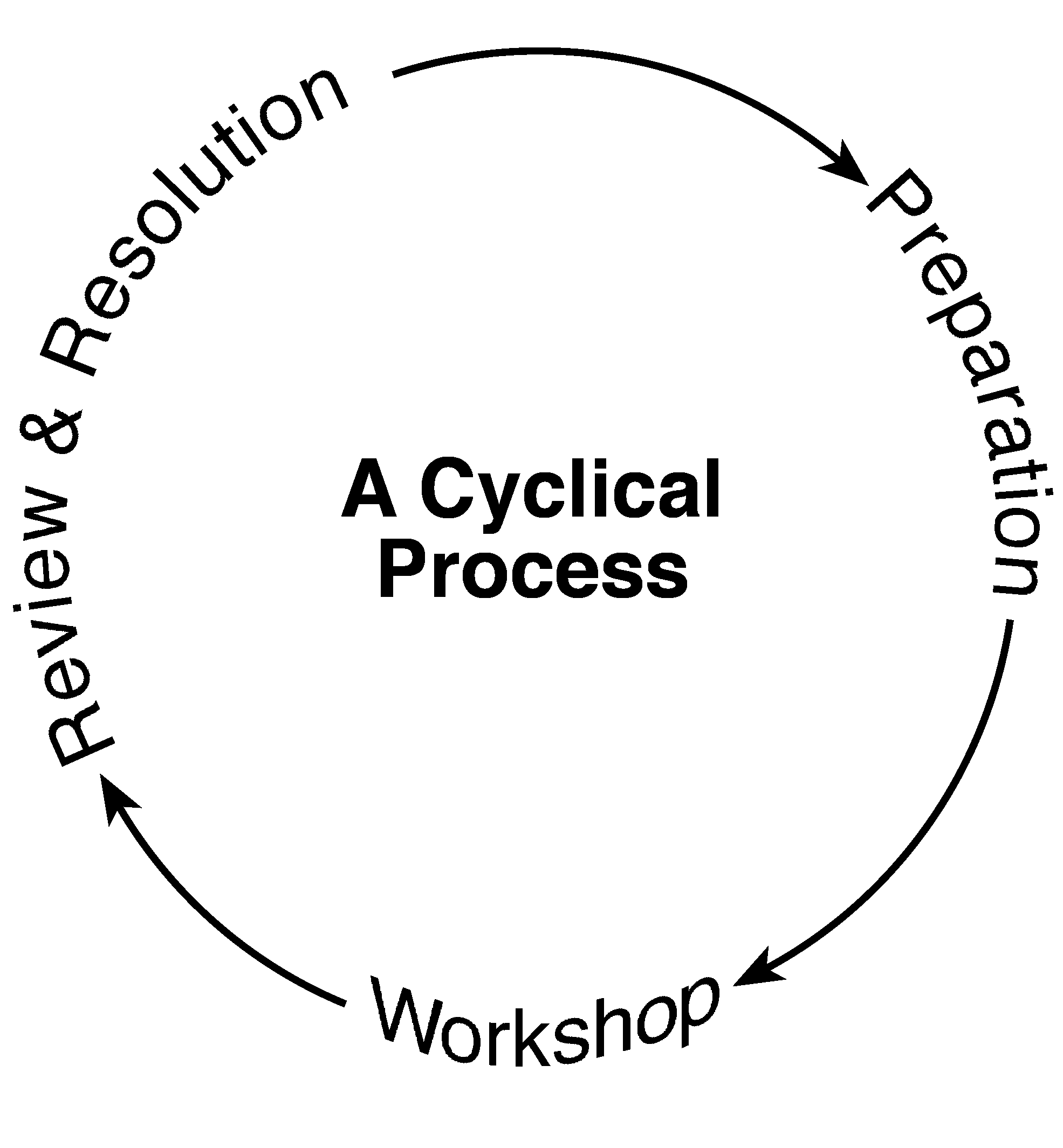
Work Philosophy | Gary Rush Facilitation
January 2006
I am an obsessive planner. I have developed strategic plans for all of my businesses and applied the same to my personal life. I plan my vacations. I plan my weekly menus. I plan my weekly shopping. If it moves, I plan it. I don't find this to be a problem because I'm flexible enough to change my plans if necessary. To tackle a job, a task, a dinner, a vacation, or anything without some form of planning beforehand doesn't work for me. It is the best way I know to ensure that my needs are met. It also helps me multi-task (today, I shopped, made pumpkin pie, made dinner, practiced dancing, and worked on this web site - with dinner, pie, and web site going on at the same time). I do live by the Project Management Institute's cycle of: Initiate, Plan, Execute, Control, and Close. I combine Initiate and Plan as well as Control and Close. I do that with MGR Consulting and I did that in my restaurant as Chef. In the restaurant industry, it is called "mise en place" - which roughly translates to "get it together first!" (the French may argue with the translation but not the intent). I do that daily. I write out "to do" lists every morning so I don't forget what I have to do. In my home, I am the cook (that must have something to do with being a chef???). For 19 years I consulted and traveled - over 3 million miles. I'm consulting again, and as one, I Plan - Do - Review. I also apply the same to my personal life. It keeps me grounded and helps me do what I need to do.
Planning - Preparation
Planning consists of ensuring that:
- You know what you need to know - where am I going?, why? how? and what will it look like when I get there?
- Others know what they need to know - are they going to the same place? do they want to? what are they doing to get there?
- Everything you need is in place - do I have the materials? the time? the skills?
- You know that you can finish your task at the right time - when? why? what if I don't?
- When you go to execute, everything works properly - did we do what we needed? wanted? expected?
Take my cooking for instance. I make everything from scratch (i.e., I make my own bread, my own ice cream, food for our pet, fresh pasta, etc.). Doing all of that takes planning. I plan my menus for the week the morning that I go shopping (I shop weekly for the groceries). I plan what I'm going to cook, when, who and how many may be coming for dinner, and what other activities I have to do - e.g., work, classes, outings, etc. That helps me prioritize my time to do what I need to do. For example, I may need to make bread on Monday. It takes me two days to make bread because the starter has to sit overnight. I then know that I begin the starter on Sunday so I can finish the bread on Monday. If I didn't plan, I'd never get my bread made. I know that on Tuesdays and Thursdays, my wife attends classes, so I prepare dinner earlier and keep it simple. On Wednesday, I can get more creative - if I'm home. Planning allows me to do what I enjoy.
The same is true with work. Surprises are for romance, birthdays, or holidays. Bad surprises at work are not what you want - especially when clients are paying you. When I work with clients - facilitating, training, or consulting - I must do the same. I always insist on preparation work with clients. This is as much for the client's benefit as for mine. As a consultant, I follow ethics that don't allow me to do and charge for work that is not prepared. When I am hired to consult, my first task is to prepare:
- What are the objectives?
- Who is involved? why?
- What are the obstacles?
- What do I have to work with? With whom?
- What is the desired outcome?
By skipping preparation, I am making assumptions and that hurts both the client and me. Consultants and clients often make the mistake of skipping the preparation to save money - this is a bad move. In the long run, the client will pay more and the consultant will look bad. Both lose.
Why Prepare as a Facilitator?
Preparation is critical for facilitation (see FAST Newsletter - "Preparation"). I don't condone unprepared facilitation. Expectations won't be met and the group will not reach its objective. It's like the old saying, "If you don't know where you are going, all roads take you there.". Preparation gathers the expectations of the participants. It enables the facilitator to know why the group is meeting so that the agenda helps the group get where they want to go. It enables the facilitator to bring in the right tools for the situation. Using the wrong tool hurts a session more than using no tools. Preparation is the first part of the cycle:

Why Prepare as a Chef?
A chef prepares for the same reason. When cooking in a restaurant for 100 people, without preparation, a lot of people will be unhappy. You can't cook different meals for 100 people if you don't prepare. It would take too long and food would come out cold or bad. Chefs spend a great deal of time before the restaurant opens just preparing. When the guests arrive, much of what they eat is already made (not necessarily cooked, but cut, seasoned and ready to cook). That is why you can walk into a restaurant, order dinner, and be served in 20 minutes or less (I'm talking about a casual or fine dinning restaurant, not a fast food restaurant - that may take 5 minutes).
Since many of you have normal lives - you work and you eat at home, I will supply you with some of my own recipes so that you can make great food at home. They include notes that help you plan - what you can do ahead of time. Recipes will be added periodically. Enjoy and please let me know how they turned out. ![]()

